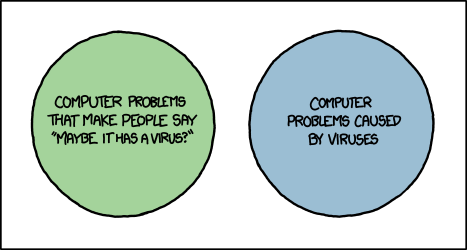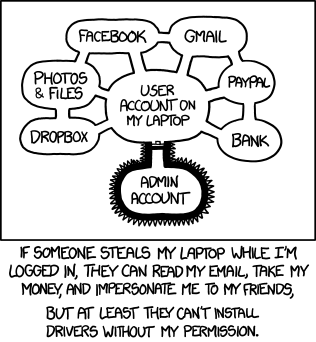This is the virus venn diagram. Its pretty accurate and many people, including people that gets along with technology, is oblivious to it. Voluntarily installing crap by installing random programs you just googled in your computer hardly counts as a virus
Sometimes they overlap tho. What I call “trawling viruses”. Using some very old exploit that should hardly work on anybody and spamming it, you can still get lots of people that never update. In this case, you dont care about anything, you just try get a quick profit and you dont really care if you slow down the target machine
But by and large, virus try to be as invisible as possible, do their bussiness and go undetected for as long as possible. If they can make an optimization to your system, like patching how they got in, they will
Using debian is one way to protect yourself… but they still fall short because it still uses a very old authorization model
Its no secret that the authorization model in computers is really old
Qubes-os is a system that tries to mitigates that problem quite sucessfully. Qubes-os 4.0 rc1 has been released recently. Im currently testing it on my mediabox, and will probably use it in my main machine soon
Holger gave a talk a few weeks ago named “Using qubes os from the pov of a debian developer”. In debconf fashion you can watch it online
If you liked this, I think you might be interested in some of these related articles:
- DEBIAN - How to clone a server using just rsync
- RANTS - Gmail mangles .gpg files
- DEBIAN - Get a nearly fresh debian install without reinstalling
- DEBIAN - Destructive git behaviour
- MISC - New years resolution III

